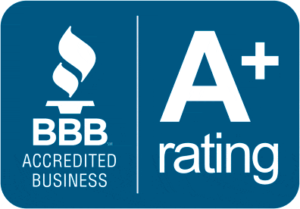In the rapidly growing world of online retail, entrepreneurs have unprecedented opportunities—and risks. Here’s why insurance matters, with key insights for your digital storefront.
What E-commerce Business Insurance Covers
Running an online business isn’t risk-free. Some of the main exposures you should consider insuring against include:
- Cyber liability: Data breaches, ransomware, or negligent data handling can lead to serious liabilities.
- General commercial liability: Even if you don’t have a physical storefront, you may still be liable if a product you sell causes harm, or if someone sues you over your business operations.
- Product liability: If you manufacture or resell products that cause injury or damage, you may be on the hook.
- Property insurance / inventory coverage: If you store inventory—whether at your home, warehouse or via a fulfilment-center—you’ll want protection in case of theft, fire, or natural disaster.
- Business interruption: If your website goes down or your supply chain is disrupted, you lose income—and insurance can help mitigate that.
- Errors & omissions (E&O) / professional liability: If you provide services (e.g., digital goods, subscriptions, consulting) and a client claims you failed to deliver or made a costly mistake, this coverage can be critical.
- Shipping & logistics risks: Damage in transit, lost shipments, supply delays—all can impact your bottom line.
Special Considerations for Online Sellers
- The “storefront” might be virtual—but your risks are very real. You may have global reach as well as global risk.
- If you use third-party fulfilment (e.g., warehousing in another state, overseas shipping) your exposure can cross state and national lines.
- Because you may rely on technology heavily, cyber insurance becomes more than a “nice to have.”
- If you drop-ship, resell, or market others’ products, product liability may be more complicated than you think.
- As your brand grows online (reviews, social media, influencer partnerships), the risks from reputation, contract disputes, and digital-marketing liability increase.
Building Your Insurance Strategy
Here’s a simple roadmap to follow:
- Inventory your risks: Walk through your business model—what you sell, how you sell it, how you store your inventory, who ships it, what data you collect, what jurisdictions you operate in.
- Choose the right covers: Based on your risk profile, select a mix of general liability, product liability, cyber liability, property/inventory, business interruption, etc.
- Shop for insurers/agents who understand e-commerce: Not all insurance agents specialise in online retail—it helps if your agent knows what you do.
- Make sure your policy reflects your real operations: If you grow quickly, change suppliers, ship internationally, or add new lines of business, update your policy.
- Budget for it: Insurance is a business expense—but compared to the cost of a major claim, it’s often a smart investment.
- Review annually: Tech, business models, and regulations change fast in e-commerce; make sure your coverage keeps pace.
A Local Partner You Can Trust
If you’re operating an e-commerce business in Massachusetts and are looking for insurance guidance, consider working with New England Family Insurance & Financial Solutions, Inc. based in Fall River, MA.
Why They’re Worth a Look
- They are accredited by the Better Business Bureau (BBB) with an A+ rating for the Fall River area. (Better Business Bureau)
- They provide guidance on business insurance (“commercial insurance”) among other coverages such as auto, home, renters, life. (Better Business Bureau)
- They are locally based (Fall River, MA) and familiar with Massachusetts business regulations and risks. (Buzzfile)
- They serve commercial clients, which is key if you run an online business and need someone who understands business exposures, not just homeowner or auto policies. (Better Business Bureau)
How to Approach Them
- Start with a risk-assessment conversation: Explain your e-commerce model—what you sell, how you ship, where you store inventory, your data practices.
- Ask specifically about cyber liability and product liability, and how those exposures apply to your online store.
- Ask for a quote that reflects your size and scale—if you’re just starting, you could initially qualify for smaller premium coverage, then scale up.
- Check for bundling options: Since you may also own a home/auto policy, sometimes bundling business + personal segments pays off.
- Discuss growth plans: If you anticipate shipping internationally, expanding inventory, or launching a marketplace, let them know so your policy stays aligned.
Final Thoughts
Running an e-commerce business is exciting and full of potential. But with opportunity comes risk—and the risks in a digital retail operation can be different from a traditional brick-and-mortar store.
By building an insurance strategy tailored to your business—covering cyber exposures, product risks, shipping and data liabilities—you’ll protect your work and your growth.
And when you partner with a knowledgeable, local agency like New England Family Insurance & Financial Solutions, you get not just a policy—but a trusted advisor who understands your region, your business size, and your unique challenges.





